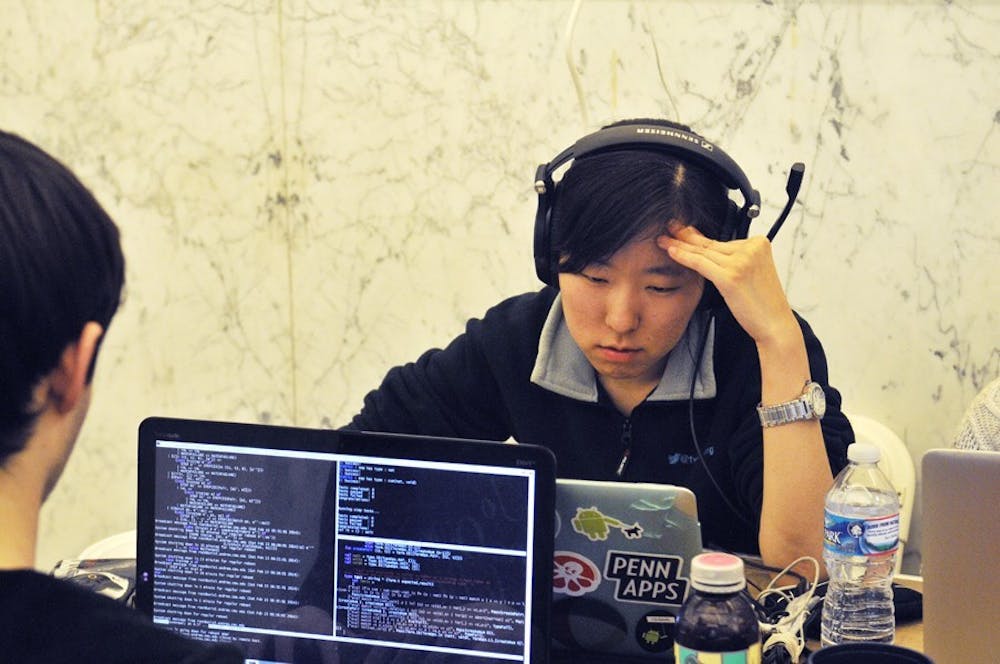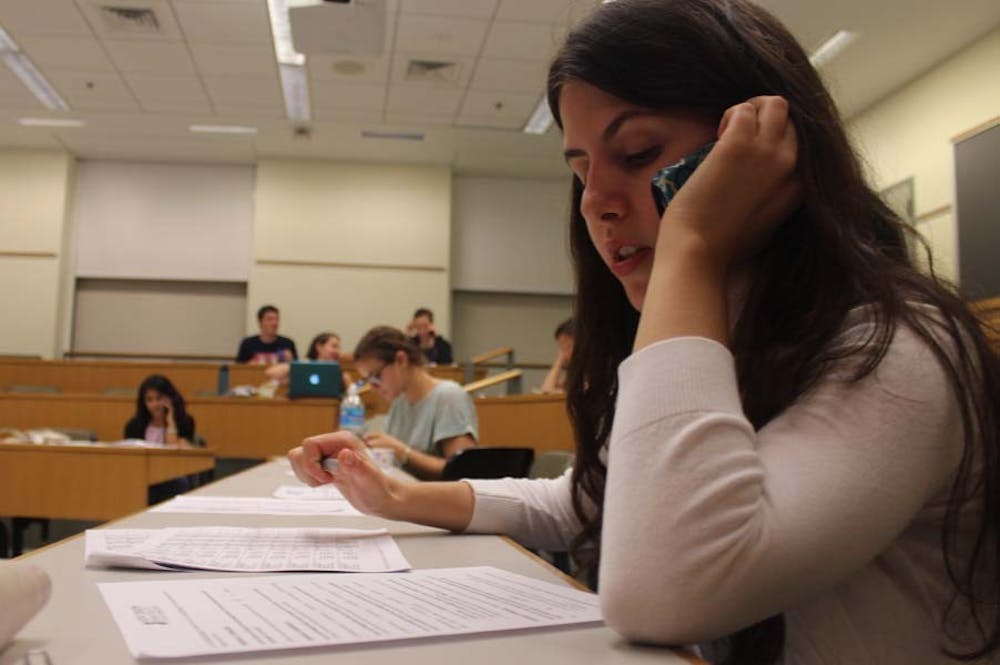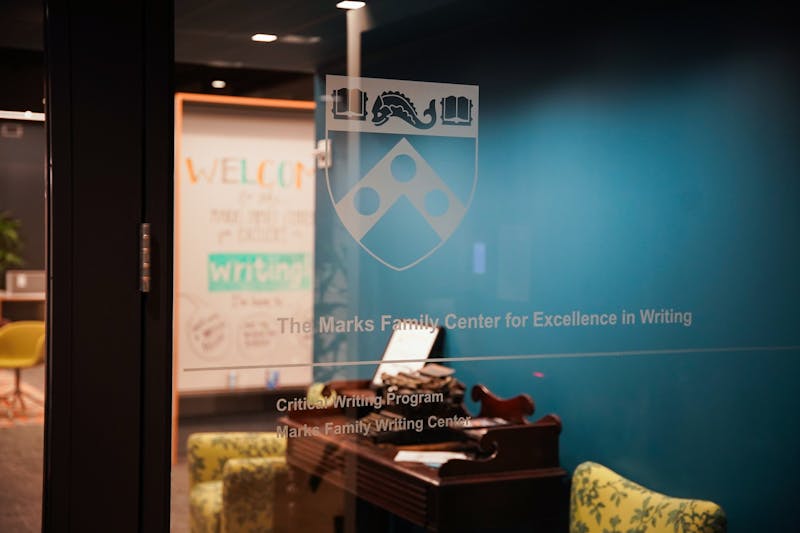
Penn students spend more time using technology than sleeping or taking care of their health. (File Photo)
Ten hours. That’s more time than most of us spend sleeping. More time than we spend hanging out with our friends. More time than we spend going on a walk or working out at the gym.
Ten hours. This is how much we spend each day staring at the blue light coming from our phone and laptop screens. If all 10,605 Penn undergraduates spent this time writing papers, watching Netflix, and scrolling through Instagram, 25,452,000 total hours would have been spent on a screen, leading to the gradual deterioration of their eyes.
Screen time is not always the first thing that comes to mind when thinking about what is bad for our eyes; not wearing sunglasses, forgetting to take mascara off before bed, and wearing contacts while asleep are often what we think of first. However, staring at phone and computer screens is right up there with the rest. As college students, it’s easy to get caught in the routine of waking up, checking your phone, walking to class sending morning Snapchat streaks, and then sitting down in class and opening up your laptop.
Penn students rely on technology as a way of staying in touch with friends, communicating with professors, typing papers, and submitting homework assignments. Even during club meetings, activities, and free time, computers and phones play a major role. It is really not possible, as a Penn student, to fully escape this realm of technology in order to stay in the loop with assignments and announcements. But as a way to help combat the overuse of screens on campus, Penn should require a majority of assignments to be done by hand.

Penn students rely on technology in almost every aspect of their life. (File Photo)
At Penn, technology is so difficult to escape and comes with many risks and long-term effects on the eyes. Within only two hours of staring at a screen, you risk digital eye strain, or computer vision syndrome. Two hours may seem like a big chunk of time, but think about just how much time you spent on that lit review for writing sem, FaceTiming your friend back home, or watching a few episodes of Grey’s Anatomy. It may seem strange to think that something so ordinary, like doing homework, could be causing Penn students so much damage in the long run. After all, everyone else is staring at screens so it must be fine, right?
Well, this technology is modern and more widely used than ever before, so we have yet to see the full effect screen time has on the eyes. Paper and pencils have been used in the past for assignments and note-taking, so why not now? Some may argue that it is more efficient to use technology as a means of studying and taking notes. However, does saving a few minutes on note-taking really outweigh the consequences of what too much screen time can cause? After all, studies have shown that you remember things better when you handwrite your notes anyway. This is because typing notes often causes you to mindlessly record what you hear, while handwriting notes forces you to summarize and think about what you are hearing due to the fact that the handwriting is not as quick as typing. Penn faculty and students should really reconsider their requirements for how assignments should be submitted as well as how they take notes on a daily basis.
There are so many easy ways to relieve strain on your eyes and to avoid potential issues in the future. If you are not thrilled about the idea of taking notes by hand, you should try minimizing the time you spend on your phone and watching TV. Take breaks from the screen often and resort to books, exercise, yoga, or talking with friends as others means of entertainment. You should also force yourself to blink often when staring at screens for long stretches of time. This is so important considering people blink about one-third as often while staring at a screen as they do normally. One more simple thing you should do to prevent eye strain is to minimize glare on your screen by positioning your phone, laptop, or TV so that it is not producing a glare from the sun. Even trying just one of these suggestions can make a lasting impact on your eyes and save yourself from having to get glasses or having even worse eyesight when you get older.

ALEXA RYBICKI is an Engineering sophomore studying bioengineering. She is involved in the engineering and science sorority, AOE, as well as Penn Assistive Devices and Prosthetic Technologies (ADAPT). Her email address is arybicki@seas.upenn.edu.
The Daily Pennsylvanian is an independent, student-run newspaper. Please consider making a donation to support the coverage that shapes the University. Your generosity ensures a future of strong journalism at Penn.
Donate







